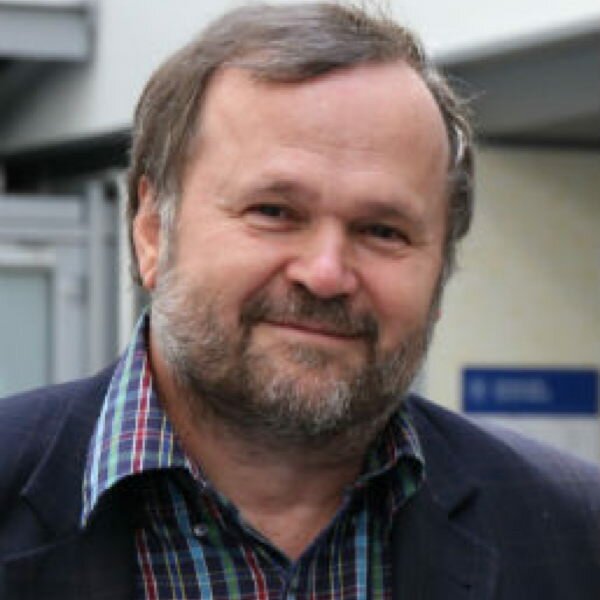Tuesday June 28th
4:15 pm to 5:00 pm: James Pawelski, IPPA – What Is Positive Psychology? The Importance of Theory for Research and Practice
Positive psychology has made a remarkable impact on psychological research and practice, yet in many sectors it remains easy to misunderstand. As the field continues to grow, further work is needed to clarify its core concepts and communicate them more effectively. Clearer definitions, broader collaborations, and deeper conceptual roots will help sustain positive psychology in its continued empirical development and evidence-based application. Sound theory, robust research, and effective practice are all vital for the mission of understanding, assessing, and advancing human flourishing.
Wednesday June 29th
9:00 am to 9:45 am: Claudia Senik – Can we use Big Data to Measures Well-Being?
It is tempting to use Big Data as a complement to traditional survey data in order to measure wellbeing. In particular, internet search volumes can be used to measure and understand the well-being of populations, with a high frequency, at a fine geographic level.
To illustrate this idea, I will discuss the construction of an indicator of individual wellbeing based on Google Trends. The indicator is a combination of keyword groups that are endogenously identified to fit with weekly time series of subjective wellbeing measures, collected by Gallup Analytics surveys.
The model successfully predicts the out-of-sample evolution of most subjective wellbeing measures at a one-year horizon.
This new type of data certainly opens new avenues for research in Social Science.
9:45 am to 10:30 am: Willibald Ruch – Character strengths: Unresolved issues, new frontiers
More than 10 years have elapsed since Peterson and Seligman presented their influential “Character strengths and virtues: A handbook and classification”. In the meantime many studies were published using the instrument and validating strengths in a variety of settings and in different cultures. Yet several assumptions are unresolved or remained untested, and others have not been addressed yet. How do the strengths relate to the perception of a good character? How can strengths be subdivided? What is the relation between strengths and virtues? What is the scientific status of signature strengths? How does character relate to personality? The talk will give an overview of basic and applied studies (e.g., in the school and work setting) conducted by my research group and address the issues that need further scientific scrutiny.
4:30 pm to 5:15 pm: Joan Duda – Promoting optimal functioning in sport and other physical activities: The need for more empowering environments
5:15 pm to 6:00 pm: Robert J. Vallerand – It’s about Time: The Role of Passion in Adaptive Self-Processes
Vallerand and his colleagues (2003; Vallerand, 2015) have proposed the Dualistic Model of Passion wherein passion is defined as a strong inclination for a self-defining activity that the person loves, values, and spends a considerable amount of energy and time on. Two types of passion are proposed: harmonious and obsessive. Harmonious passion results from an autonomous internalization of the activity in identity and self that provides access to adaptive self-processes. Thus, the person can fully partake in the passionate activity with a flexibility and an openness to experience the world in a non-defensive (Hodgins & Knee, 2002), mindful manner (Brown & Ryan, 2003). Such adaptive processes are conducive to positive experiences. On the other hand, Obsessive Passion is involved when people feel that they have to surrender to their desire to engage in the passionate activity that they love. Obsessive passion results from a controlled internalization (Deci & Ryan, 2000) of the activity, preventing access to adaptive self-processes. Research so far (see Vallerand, 2015 for a review) has mainly looked at a variety of outcomes without focusing on self-processes per se. In this presentation, I review research that takes the passion concept in unchartered areas and novel directions with respect to a number of self-processes, including mindfulness, resilience, and optimal functioning that provide support for the Dualistic Model of Passion. Implications for a psychology of passion and for self-processes are highlighted.
Vallerand, R.J. (2015). The Psychology of Passion. New York: Oxford University Press.
Thursday June 30th
9:00 am to 9:45 am: Barbara Fredrickson – Why Prioritize Positivity?
Evidence for the benefits of positive emotions continues to grow. Even so, people’s deliberate efforts to cultivate positivity can backfire. Successfully regulating positive emotions appears to be a delicate art, one that is perhaps best supported by situation selection and other antecedent-focused forms of emotion regulation. Prioritizing positivity is one such approach to up-regulating positive emotions. In this talk, Professor Barbara Fredrickson shares recent evidence from the Positive Emotions and Psychophysiology Laboratory (PEP Lab) that reveals various ways that prioritizing positivity improves people’s emotional well-being and their health-related behavioral engagement. Moreover, prioritizing positivity within favorite activities and wellness behaviors is associated with increases over time in nonconscious motives for those activities, as indexed by the positivity of spontaneous thoughts about them. The positivity of activity-related spontaneous thoughts, in turn, predicts subsequent activity engagement. In this manner, prioritizing positivity can trigger upward spirals of lifestyle change and the development of harmonious passions.
9:45 am to 10:30 am: Mohsen Fatemi – Positive psychology and psychology of possibility
This keynote speech argues that deep down the underlying components of positive psychology, there lies the psychology of possibility. Psychology of possibility redefines possibility in view of Langerian mindfulness and posits that infinite possibilities unfold themselves in emergent modes of mindfulness. Possibility may be contained, distorted, limited and frozen because of the past stricken schema on possibility. The presentation discusses the components of Langerian mindfulness and their implications for creative modes of possibilities. The cognitive, emotional and behavioral aspects of possibilities are reexamined by virtue of Langerian mindfulness with an in-depth look into the observer- actor relationship in creating novel modalities of possibilities. The keynote speech explicates how a premature cognitive commitment towards a democratization of possibility may block the emergence of expansive modes of possibilities.
4:30 pm to 5:15 pm: Chiara Ruini – When clinical psychology contributes to advances in positive psychology, and vice-versa
The lecture will provide a review of the literature on positive and clinical psychology, and will highlight the several points of convergence between the disciplines. Clinical psychology has a long tradition and several theoretical contributions that have addressed issues such has happiness, resilience and optimal functioning. However, the medical model that conditioned clinical practice has overshadowed these contributions and given privileged attention to distress and negativity in human existence. On the other hand, the emerging field of Positive Psychology has devoted attention and resources to the investigation of positivity and criticized the clinical approach in its unbalanced focus on negativity. However, it referred to psychopathology in the definitions of flourishing and other positive characteristics, as well as in using similar therapeutic ingredients when implementing interventions. On the same vein, a large body of clinical psychology and psychotherapy research (CBT and third way psychotherapies in particular) has extensively addressed the promotion of positive dimensions in clinical practice. The main theoretical and technical similarities between positive psychology and clinical psychology will be highlighted, emphasizing the fact that the boundaries between these fields of investigation have been artificially formulated, rather than being really applied. Positive psychology research would improve by integrating insightful perspectives derived from the historical and theoretical background of clinical psychology. These contributions indeed calls for a whole consideration of individuals’ characteristics and specificities, and may provide suggestions for overcoming the “one size fits all approach” often criticized inside the Positive Psychology research. On the other hand, positive psychology may contribute to advances in clinical domains by providing valid instruments for the evaluation of patients’ strengths and resources, and by enlarging therapeutic goals to the restoration and maintenance of wellbeing, using specific positive interventions. In conclusion, the integration of research deriving from these two disciplines seems highly feasible, and beneficial for both.
5:15 pm to 6:00 pm: Neil Garrett – How the Human Brain forms Optimistic Beliefs
We are constantly flooded with information (via the Web, advertising, colleagues, friends etc.) that helps us form predictions about the future and make decisions. One of the most salient attributes of information is valence: whether a piece of news is good or bad. Classic theories in psychology, economics and machine learning all implicitly assume that beliefs are adjusted in a similar manner in response to desirable and undesirable information. In this talk I will provide evidence challenging these assumptions. I will show that while people incorporate good news into their existing beliefs in a normative manner, they discount bad news leading to optimistically biased beliefs. The asymmetry, however, is not set in stone, but fluctuates in response to changes in the environment in a way that may be adaptive. Using a combination of fMRI, TMS and DTI we characterize the neural system supporting this asymmetry and show that variation in this circuit is related to individual differences in behaviour and mental health, with more balanced incorporation of information observed in depression and middle age.
Friday July 1st
9:00 am to 9:45 am: Felicia Huppert – What Makes People Flourish?
Flourishing, or a high level of well-being, is about the experience of life going well. It is a combination of feeling good and functioning effectively. There is evidence that a high level of well-being is associated with positive health and good relationships, with learning and capability. However, the instrumental benefits of well-being are not the main reason why well-being is important. They are merely a by-product or bonus of a high level of well-being. The real reason well-being matters is that well-being is an end in itself – an ultimate good.
In this presentation I will describe a recent approach to measuring flourishing, and new data on the drivers of flourishing across Europe. There is also great interest in how to increase flourishing, and there are many good programs designed to do this. It could be argued that underlying them all are the skills of attention, emotion regulation, and self-compassion. One technique which explicitly develops these seminal skills is mindfulness. Evidence for the well-being benefits of mindfulness programs will be presented, along with supporting data from neuroscience.
9:45 am to 10:30 am: Neil Thin – Aspirational social planning: beyond social problems and living standards
Psychologists understand that mental flourishing is utterly dependent on positive social qualities. Good minds need good societies, and we need to know what positive social qualities we cherish in order to foster them. Yet the positive psychology movement has a weak track record in fostering recognition of the social transformations required to support individual flourishing. Social research, social planning, and social entrepreneurship, for their part, do address the social embeddedness of individuals. But despite the current fashion for talking about ‘wellbeing’, the ‘good society’ and ‘empathy’ these disciplines remain mired in a swamp of pathologism and remedialism, and lack any coherent aspirational visions of social progress. In an era when positive psychology and self-help movements inspire people worldwide to try living really excellent lives, why is it that so much social planning remains stuck in nonaspirational mode? Why do sociologists, social planners, social innovators, and proponents of corporate social responsibility find it so hard to articulate visions of really good social qualities? This presentation will look for more inspiring examples where people are promoting wellbeing and positive social qualities together, in such domains as school improvement, nonremedial social entrepreneurship, and workplace wellbeing interventions.
1:00 pm to 1:45 pm:
Ilona Boniwell – Positive Education: Making Positive Psychology Tangible












